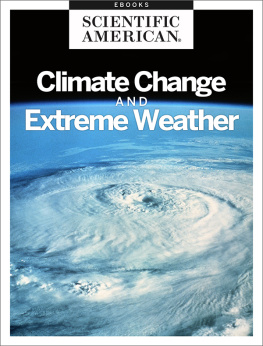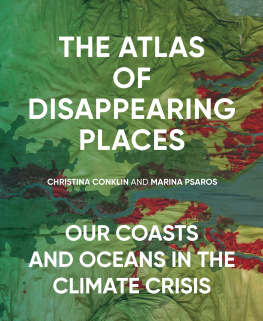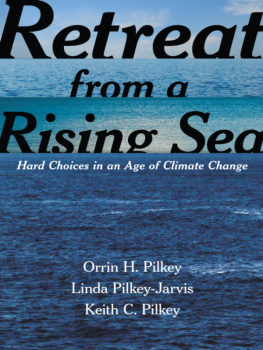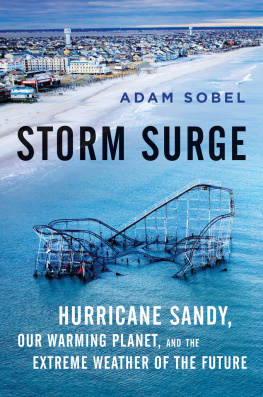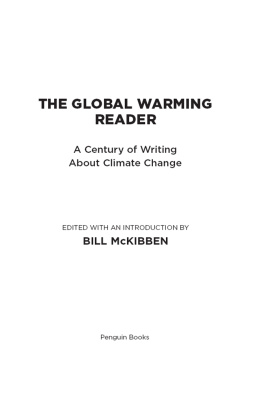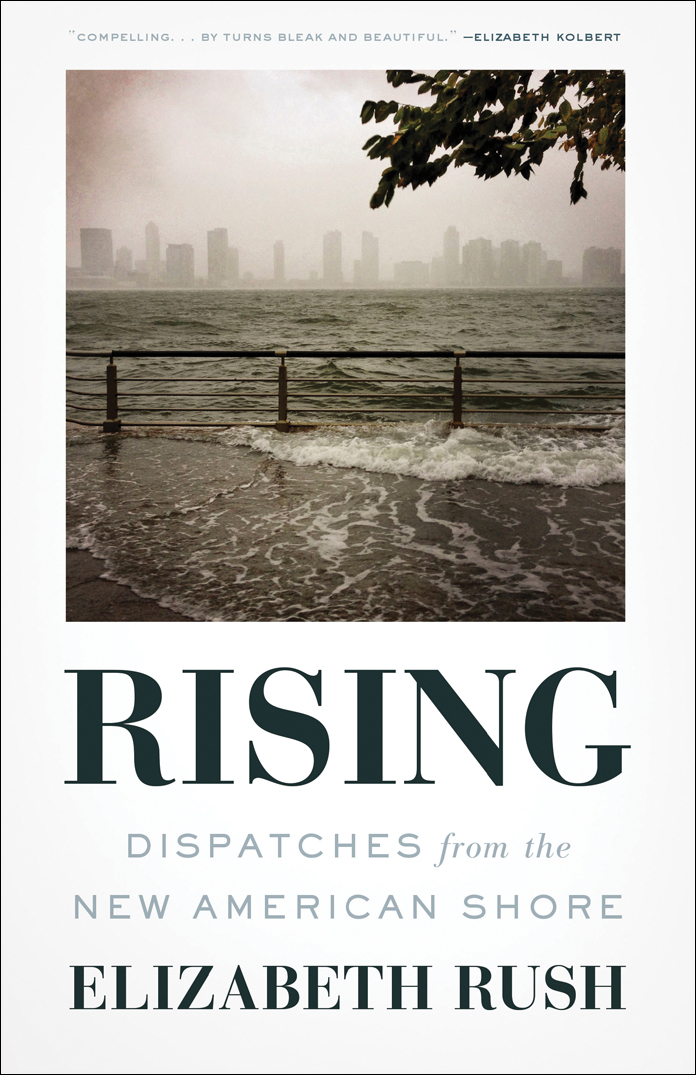PRAISE FOR RISING
A smart, lyrical testament to change and uncertainty. These are the stories we need to hear.
TERRY TEMPEST WILLIAMS, author of The Hour of Land
A compelling piece of reporting, by turns bleak and beautiful.
ELIZABETH KOLBERT, author of The Sixth Extinction
A journey through the turbulent forefront of climate change. Elizabeth Rush sets out to put a face on a subject that is all too often depicted in abstract graphs and statistics.
CHARLES C. MANN, author of 1491
In this moving and memorable book, the voice of the author mingles with the voices of people in coastal communities all over the country to offer testimony: The water is rising.
ANNE FADIMAN, author of The Spirit Catches You and You Fall Down
Elizabeth Rush rises. She brings stories out of the woodwork, revealing the true effect of sea level rise on the land, on the sea, and on people. She writes from a generation not asking if climate change is true or not, but how to live in the face of it, how we adapt, lose, or gain. Logging the finest, most intuitive details, Rush holds her subjects in tight focus, each coastline conveyed down to its grains of sand and inflections in the tides. Her writing is present among relocations and dying swamps, conveying the intricate nature of sea level rise. How do levees work? What does saltwater do to a freshwater aquifer? What voices are coming out of the wrack line, and what does it sound like as a coast is rewritten? Rush makes real a monolithic subject often too large to digest. You can taste the coming salt.
CRAIG CHILDS, author of The Animal Dialogues
Rising is not just a book about rising sea levels and the lost habitats and homesits also a moving rumination on the rise of women as investigative reporters, the rise of tangible solutions, the rise of human endeavor and flexibility. It is also a rising of unheard voices; one of the eloquent beauties of this book is the inclusion of various stories, Studs Terkelstyle, of those affected most by our changing shoreline. A beautiful and tender account of whats happeningand whats in store.
LAURA PRITCHETT, author of Stars Go Blue
From the edges of our continent, where sea level rise is already well underway, Elizabeth Rush lays bare the often hidden effects of climate changelost homes, lost habitats, broken family ties, chronic fear and worryand shows us how those effects ripple toward us all. With elegance, intelligence, and guts, she guides us through one of the most frightening and complex issues of our time.
MICHELLE NIJHUIS
Timely and urgent, this report on how climate change is affecting American shorelines provides critical evidence of the devastating changes already faced by some coastal dwellers. Elizabeth Rush masterfully presents firsthand accounts of these changes, acknowledging her own privileged position in comparison to most of her interviewees and the heavy responsibility involved in relaying their experiences to an audience.... In the midst of a highly politicized debate on climate change and how to deal with its far-reaching effects, this book deserves to be read by all.
Publishers Weekly (starred review)


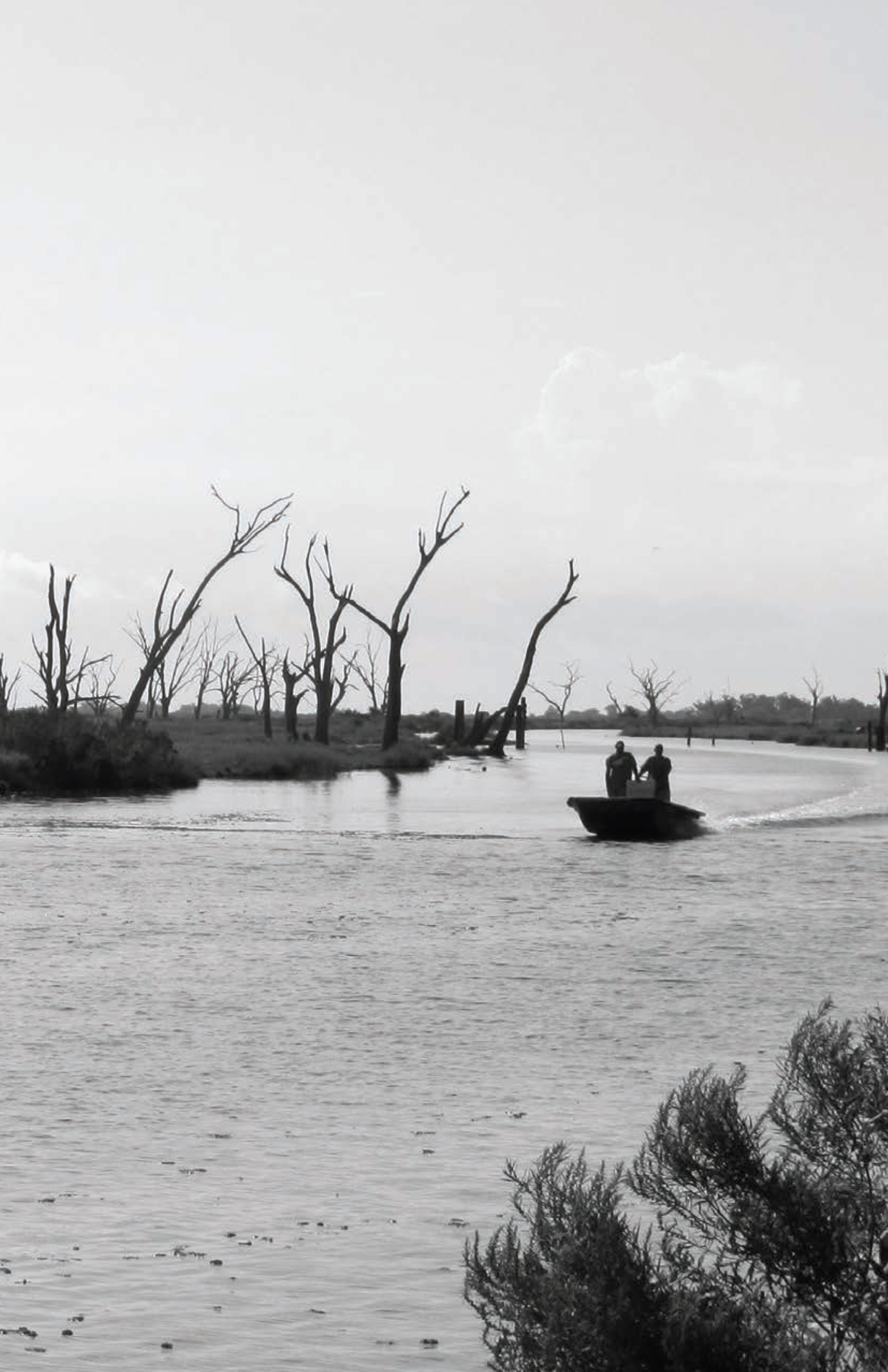
2018, Text by Elizabeth Rush
All rights reserved. Except for brief quotations in critical articles or reviews, no part of this book may be reproduced in any manner without prior written permission from the publisher: Milkweed Editions, 1011 Washington Avenue South, Suite 300, Minneapolis, Minnesota 55415.
(800) 520-6455
milkweed.org
Published 2018 by Milkweed Editions
Cover design by Mary Austin Speaker
Cover photo Michael Christopher Brown/Magnum Photos
18 19 20 21 22 5 4 3 2 1
First Edition
Milkweed Editions, an independent nonprofit publisher, gratefully acknowledges sustaining support from the Jerome Foundation; the Lindquist & Vennum Foundation; the McKnight Foundation; the National Endowment for the Arts; the Target Foundation; and other generous contributions from foundations, corporations, and individuals. Also, this activity is made possible by the voters of Minnesota through a Minnesota State Arts Board Operating Support grant, thanks to a legislative appropriation from the arts and cultural heritage fund, and a grant from Wells Fargo. For a full listing of Milkweed Editions supporters, please visit milkweed.org.

Library of Congress Cataloging-in-Publication Data
Names: Rush, Elizabeth A., author.
Title: Rising: dispatches from the new American shore / Elizabeth Rush.
Description: First edition. | Minneapolis, Minnesota: Milkweed Editions, 2018. | Includes bibliographical references.
Identifiers: LCCN 2017059870 (print) | LCCN 2018016302 (ebook) | ISBN 9781571319708 (ebook)
Subjects: LCSH: Coast changes--Climatic factors--United States. | Coasts--Climatic factors--United States. | Sea level--Climatic factors--United States. | Rush, Elizabeth A.--Travel--United States.
Classification: LCC GB459.4 (ebook) | LCC GB459.4 .R86 2018 (print) | DDC 551.45/70973--dc23
LC record available at https://lccn.loc.gov/2017059870
Milkweed Editions is committed to ecological stewardship. We strive to align our book production practices with this principle, and to reduce the impact of our operations in the environment. We are a member of the Green Press Initiative, a nonprofit coalition of publishers, manufacturers, and authors working to protect the worlds endangered forests and conserve natural resources. Rising was printed on acid-free 100% postconsumer-waste paper by Friesens Corporation.
For my family, for Felipe, and for my scattered tribe.
CONTENTS
Table of Contents
Guide
Attention is prayer.
SIMONE WEIL
Within a single human existence things are disappearing from the earth, never to be seen again. In Passamaquoddy [Maine] our sacred petroglyphsthose carvings in rock that were put there thousands of years agoare now being put under water by the rising seas. Weve seen this happen for a long timethis diminishing of our natural resourcesthrough climate change and invasive species. The losses have been slow and multigenerational. We have narrowed our spiritual palettes and our physical palettes to take what we have. But the stories, the old stories that still contain a lot of these elements, hold on to the traditional. For example, our ceremonies and language still include the caribou, even though they dont live here anymore. Similarly, we know the petroglyphs still exist, but now theyre underwater. The change is in how we acknowledge them.
JOHN BEAR MITCHELL
Penobscot scholar and member of the Penobscot Nation in Machiasport, Maine









